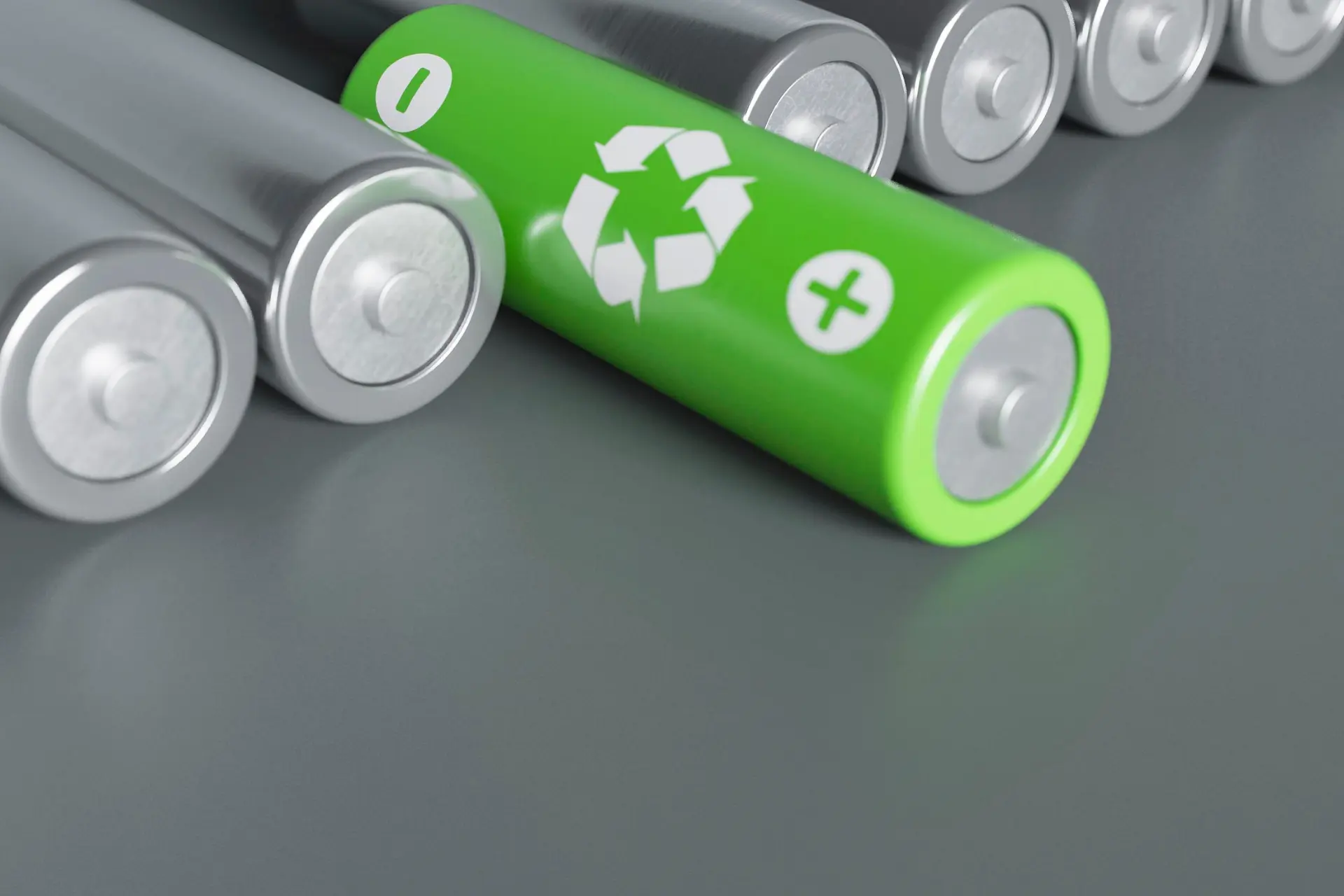Introduction
What is OPRL?
The On-Pack Recycling Label (OPRL) is a UK-based initiative that provides clear and standardised recycling instructions on product packaging. It aims to simplify recycling for consumers by clearly indicating whether an item can be recycled and how it should be disposed of.
The concept is straightforward: every item that carries an OPRL label communicates its recyclability in a way that is accessible to all. Unlike generic recycling symbols, which often require interpretation, OPRL labels are unambiguous and designed to reflect the capabilities of the UK’s recycling infrastructure. The initiative works closely with local authorities, businesses, and recycling facilities to ensure its guidelines remain relevant and actionable.
The Importance of Clear Recycling Labels
The success of recycling depends heavily on proper waste sorting. When consumers misinterpret recycling symbols, they may inadvertently contaminate recycling streams by placing non-recyclable materials in bins meant for recyclables. For instance, a single greasy pizza box in a load of paper recycling can compromise the entire batch.
OPRL mitigates these risks by using consistent terminology like “Widely Recycled” and “Not Recycled.” By empowering consumers with the right information, the initiative fosters better recycling habits, reduces waste contamination, and improves the efficiency of the UK’s recycling systems.
Exploring OPRL
The Origin and History of OPRL
The OPRL system was introduced in 2009 by a consortium of businesses and industry leaders who recognised the need for a more effective recycling communication tool. Recycling rates in the UK were stagnating, with many consumers confused about how to dispose of packaging responsibly.
The initial system was simple but effective, consisting of just a few labels that reflected recycling capabilities at the time. As the system grew in popularity, OPRL began expanding its scope to accommodate changes in packaging materials and recycling technologies. Today, OPRL is a trusted authority with over 700 member businesses, representing thousands of products.
Some notable milestones in OPRL’s history include:
- The launch of compostable packaging labels.
- The integration of flexible packaging guidelines.
- Partnerships with major retailers and government agencies to standardise recycling practices.
How OPRL Works
At its core, OPRL relies on a comprehensive classification system that evaluates packaging based on:
- The material type (e.g., glass, plastic, aluminium).
- Whether local authorities accept the material in their kerbside recycling schemes.
- The recyclability of the material in commercial or specialist facilities.
Each product is assessed, and an appropriate label is assigned. The labels are designed to be easy to understand, ensuring that consumers can make informed choices at a glance. For example:
- “Widely Recycled” means the item is accepted by at least 75% of UK councils.
- “Check Locally” means recycling depends on the availability of specialist facilities.
- “Not Recycled” means there are no viable recycling options currently available.
Why OPRL Matters
Environmental Impact
The environmental benefits of recycling are well-documented. By reducing the need for raw materials, recycling conserves natural resources, saves energy, and decreases greenhouse gas emissions. However, the effectiveness of recycling hinges on consumer participation and proper waste sorting.
OPRL plays a vital role in addressing these challenges by providing clear instructions for disposal. This leads to:
- Lower levels of contamination in recycling streams.
- Higher rates of successful material recovery and reuse.
- Reduced dependence on landfills and incineration.
Consumer Behaviour and Awareness
One of OPRL’s greatest strengths is its ability to influence consumer behaviour. Research shows that when people are confident in their ability to recycle correctly, they are more likely to do so. By simplifying recycling decisions, OPRL removes a common barrier to participation.
Additionally, OPRL serves as an educational tool, raising awareness about the recyclability of different materials. Over time, this awareness fosters a culture of environmental responsibility, where consumers actively seek out recyclable products and avoid wasteful packaging.
OPRL Categories and Their Meaning
Overview of OPRL Labels
OPRL categorises packaging into three main groups, each designed to reflect the material’s recycling potential:
- Widely Recycled: Covers materials like glass jars, aluminium cans, and cardboard boxes, which are accepted by most local recycling schemes.
- Check Locally: Includes materials such as certain plastic films or beverage cartons, which may only be recyclable in areas with specialised facilities.
- Not Recycled: Refers to materials like crisp packets and laminated plastics, which currently lack viable recycling solutions.
Detailed Breakdown of Common Labels
- “Widely Recycled”: Items with this label should be rinsed or cleaned to remove food residue before being placed in kerbside bins.
- “Check Locally”: Consumers are advised to verify with their local council or visit specialist recycling points for these items.
- “Not Recycled”: These items should be disposed of in general waste bins, highlighting the need for innovation in packaging design and recycling technology.
How to Implement OPRL
For Businesses
Benefits of Using OPRL on Packaging
By adopting OPRL, businesses demonstrate their commitment to sustainability. This can enhance brand reputation and attract eco-conscious consumers, who increasingly prioritise sustainable products.
Steps to Obtain OPRL Membership
Businesses must apply for membership, which involves:
- Signing up with OPRL and agreeing to its standards.
- Conducting a packaging audit to determine recyclability.
- Applying the appropriate labels to products.
How to Design Packaging with OPRL Compliance
OPRL provides resources and guidance to help businesses design packaging that aligns with recyclability standards. This includes selecting materials that are easier to recycle and avoiding problematic combinations like plastic-lined paper.
For Consumers
- How to Read and Follow OPRL Guidelines: Consumers should check the OPRL label on packaging and dispose of items accordingly. For example, a “Widely Recycled” plastic bottle should be emptied and rinsed before being placed in the recycling bin.
- Supporting Businesses That Use OPRL: By purchasing products with OPRL labels, consumers send a strong message to businesses about the importance of sustainability.
Challenges and Criticisms of OPRL
Addressing Common Issues
- Confusion Among Consumers: While OPRL simplifies recycling, terms like “Check Locally” can still cause uncertainty. Providing additional educational materials or QR codes linking to detailed disposal instructions can help.
- Inconsistent Recycling Infrastructure: Recycling capabilities vary across the UK, meaning some materials labelled “Check Locally” may still end up in landfills.
Future Improvements
- Innovations in Labelling and Recycling: Introducing dynamic labels that provide real-time updates about local recycling facilities could bridge the gap between OPRL and infrastructure limitations.
- Increasing Standardisation Across Regions: Aligning local council policies with OPRL standards would create a more cohesive recycling system.
FAQs About OPRL
What Is the Difference Between OPRL and Other Recycling Labels?
OPRL offers specific, actionable guidance tailored to UK infrastructure, unlike generic recycling symbols.
How Do I Know If My Packaging is Eligible for OPRL?
Businesses can refer to OPRL’s assessment tools to determine the appropriate label for their packaging.
Can OPRL Be Used Internationally?
While designed for the UK, OPRL’s principles can inspire similar systems globally, fostering better recycling collaboration.
Why do some items say “Widely Recycled,” but my council doesn’t accept them?
While “Widely Recycled” indicates that at least 75% of UK councils accept the material, there are still regional variations in recycling capabilities. It’s always a good idea to check with your local council if you’re unsure.
What should I do if the packaging has multiple materials, like plastic windows on cardboard boxes?
In cases where packaging combines materials, the OPRL label will typically advise how to separate them for recycling. For example, there may be a requirement to remove the plastic window and recycle the cardboard separately.
Can I recycle items labelled “Check Locally” in my kerbside bin?
Items labelled “Check Locally” may require specialised facilities not available through kerbside collections. Check with your local council or use recycling locator tools to find nearby drop-off points.
What is being done about packaging labelled “Not Recycled”?
OPRL actively collaborates with manufacturers, recyclers, and policymakers to find solutions for currently unrecyclable materials. This includes encouraging the development of alternative packaging materials and improved recycling infrastructure.
Are compostable packaging and recyclable packaging the same?
No, compostable packaging is designed to break down in industrial composting facilities and is not suitable for traditional recycling systems. OPRL provides specific labels for compostable materials to guide consumers on proper disposal methods.
How does OPRL address biodegradable packaging?
Biodegradable packaging is often excluded from recycling systems as it can contaminate conventional recycling streams. OPRL advises consumers to follow the disposal instructions provided by the manufacturer and avoid placing biodegradable items in recycling bins.
Why do some products not display an OPRL label?
Not all businesses are OPRL members. This means there is no requirment to display OPRL labels on their packaging. If you encounter packaging without a label, check the manufacturer’s website or contact them for recycling guidance.
Why You Should Choose 4Pack for OPRL Compliance
Streamlined Packaging Data Management
Achieving compliance with the On-Pack Recycling Label (OPRL) initiative requires accurate, up-to-date, and accessible packaging data. 4Pack offers a cutting-edge packaging data management solution that centralises all your packaging information in one place. This includes materials, components, labels, artwork, and workflows, enabling you to maintain a single source of truth for your data. By streamlining internal collaboration and aligning efforts across the supply chain, our solution ensures that your OPRL compliance processes are efficient and error-free.
Centralised Reporting for Regulatory Compliance
Compliance with OPRL demands accurate reporting of packaging waste and recyclability data. Unlike traditional ERP systems, 4Pack is purpose-built to handle the complexity of packaging data. It automates the data collection and reporting processes, ensuring you meet OPRL’s strict guidelines with precision. From managing regional variations in recycling capabilities to meeting ESG (Environmental, Social, and Governance) reporting requirements, 4Pack simplifies complex compliance workflows and reduces the risk of penalties for non-compliance.
Embedding Sustainability into Your Packaging Strategy
4Pack goes beyond compliance, embedding sustainability into your product development and packaging processes. By integrating environmental checks and balances at every stage, our solution ensures that recyclability and sustainability are a priority from the design phase. This proactive approach not only helps you meet OPRL standards but also aligns your packaging strategy with consumer expectations for eco-friendly practices.
Enhanced Supply Chain Collaboration
Meeting the requirements often involves collaboration with suppliers and partners. 4Pack facilitates this by making critical packaging data accessible across your supply chain. Our platform supports shared access to data, fostering effective communication and collaborative project management. This ensures alignment amongst all stakeholders in their efforts to create packaging that complies with OPRL guidelines while advancing your overall sustainability goals.
Accurate and Automated ESG Reporting
There is a close tie between OPRL and your broader ESG responsibilities. 4Pack automates the collection and reporting of data required for packaging levies and sustainability metrics. With detailed, reliable reports generated effortlessly, you can demonstrate your commitment to sustainability while saving time and resources. By minimising errors and ensuring timely reporting, 4Pack enhances your organisation’s credibility in meeting regulatory and ethical standards.
Future-Proof Your Business with Innovation
As OPRL guidelines evolve and sustainability expectations grow, businesses must remain agile and adaptable. 4Pack’s flexible and scalable platform ensures you’re ready for future changes in packaging regulations. Our data-driven approach enables you to identify trends, inefficiencies, and opportunities for improvement, empowering you to stay ahead in the race for sustainability.
The 4Pack Advantage
Choosing 4Pack means investing in a comprehensive, data-driven solution that supports your journey towards OPRL compliance and sustainability. Here’s why we’re the right partner for your business:
- Specialised Expertise: We tailor our platform for packaging data, providing capabilities that general enterprise systems cannot match.
- Sustainability Integration: From design to disposal, we ensure sustainability is at the forefront in every step of your packaging lifecycle.
- Efficiency and Accuracy: Automating compliance and reporting processes saves time, reduces errors, and streamlines your workflows.
- Collaboration and Transparency: Shared access to data across your supply chain fosters alignment and accelerates progress towards sustainability goals.
With 4Pack, achieving OPRL compliance becomes a seamless process that benefits your business, your customers, and the environment. Let us help you lead the way in sustainable packaging and meet the rising demand for responsible, recyclable solutions.
If you would like to understand more about how 4Pack can help you remain compliant with OPRL standards or other regulations around product packaging, get in touch with our expert team today!


